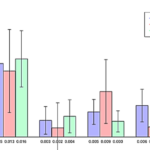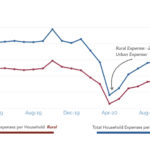The Covid-19 Pandemic and Lockdown: First Effects on Gender Gaps in Employment and Domestic Work in India
By Ashwini Deshpande | 17 June 2020 Topics : Caste, Covid-19, Employment, Gender, India, Lockdown
Based on national-level panel data from Centre for Monitoring Indian Economy (CMIE)’s Consumer Pyramids Household Survey (CPHS) database, this paper investigates the first effects of Covid-19 induced lockdown on employment and hours spent on household work. Identifying roughly over 40,000 individuals surveyed in April 2020 (i.e. during the strict nationwide lockdown) and examining their employment status over the last year, the paper finds that overall employment dropped sharply post-lockdown, with no change in the pre-pandemic time periods. This drop in employment was not gender neutral. Given the large pre-existing gender gaps in employment, in absolute terms, more men lost employment than women. However, conditional on being employed pre-lockdown, women were roughly 20 percentage points less likely to be employed than men who were employed pre lockdown. India has amongst the most unequal gender division of household work globally. Comparing hours spent on domestic work pre- and post-lockdown, we find that for men, hours spent on domestic work increased during lockdown. The gender gap in average hours spent on domestic work hours decreased in the first month of the lockdown, and most states showed a decline in the gender gap due to a shift in the male distribution of hours. The male distribution continues to be right-skewed, but the proportions of men doing between 0.5 to 4 hours of housework per day increased post-lockdown.
Read moreMedia Mentions
 When will the Indian male be truly ‘atmanirbhar’ at home?
When will the Indian male be truly ‘atmanirbhar’ at home?15 August 2020
 Coronavirus in India: Did men do more housework during...
Coronavirus in India: Did men do more housework during...12 August 2020
 Can COVID-19 change the work culture at home for men and...
Can COVID-19 change the work culture at home for men and...1 August 2020
 Did Indian Men Do More Housework During Lockdown? It...
Did Indian Men Do More Housework During Lockdown? It...29 July 2020
 The Virus Has Made India’s Devastating Gender Gap Even...
The Virus Has Made India’s Devastating Gender Gap Even...26 June 2020
 Gender Disparity in India's Lockdown-Induced Job Losses
Gender Disparity in India's Lockdown-Induced Job Losses24 June 2020
 Gender gap in housework reduced by an hour during...
Gender gap in housework reduced by an hour during...18 June 2020
 How covid-19 locked out women from jobs
How covid-19 locked out women from jobs11 June 2020
 An Expert Explained: The gender gap in job losses caused by the...
An Expert Explained: The gender gap in job losses caused by the...6 June 2020
 Women's employment hit harder by lockdown
Women's employment hit harder by lockdown6 June 2020






